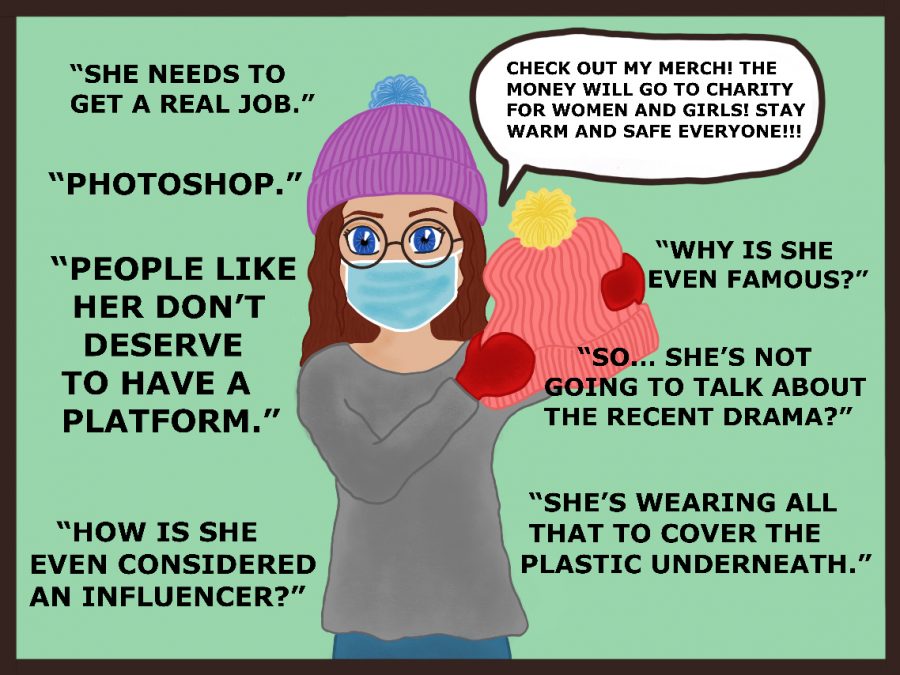Dawe: Why hating influencers is something you should rethink
Though being an influencer is often looked down upon, issues such as the gender pay gap still exist in the proffesion.
February 25, 2021
Influencers. You can’t get on a single social media app without being bombarded by their sponsored posts and, usually, irresponsible antics. But hating them without reason stinks of sexism.
For obvious reasons, a lot of people don’t take influencers seriously. Most of the time, they are famous for being conventionally attractive and can be problematic people. Even during a pandemic, they have continued to party and be reckless, putting people’s lives at risk. However, influencers may also not be taken seriously because it’s a female-dominated field, with 77% of influencers being women.
Historically, female-dominated fields are underpaid and under-respected. These “pink-collar” professions, like teaching, nursing, social work and librarianship, are all considered less respectable, because they are mainly occupied by women. Teaching, for example, was considered very respectable and well paid, until the late 1800s, when women started to take teaching jobs.
As with other “pink-collar” fields, women still have to deal with things like sexism and the gender pay gap. On average, women earn $351 per sponsored post, while men earn $459; a $108 pay gap, in a female-dominated industry. Travel influencing is the only exception, where women make an average of $651 per post and men make $570. The highest wage gap is on YouTube, where men earn around 38% more than women.
Society often doesn’t want to see women supporting themselves, and that’s why influencers are so disliked. It is an industry of women using things like their confidence and sex appeal to make money for themselves. Before, women were only expected to be confident and proud of themselves if they had permission first. Women celebrating themselves, especially women who aren’t usually celebrated like queer, BIPOC and plus-sized women, is something that many people don’t like to see. So when they take their power back, people get angry.
Women, young women especially, are hardly ever taken seriously. We have been expected to sit down, be quiet for a long time and influencing is giving women across the world platforms to say what they want to say. Sometimes it’s good and inspiring and sometimes it is neither of those things. But at least we have space where we can voice our opinions to a crowd who listens.
I don’t think you have to like influencers. There are still a lot of problems with the influencer industry, and many people who have a platform probably shouldn’t. But it is always important to look at the things you dislike with some self-reflection and ask yourself: “Do I actually dislike this person, or is this just an unconscious bias to dislike female-dominated fields?”










